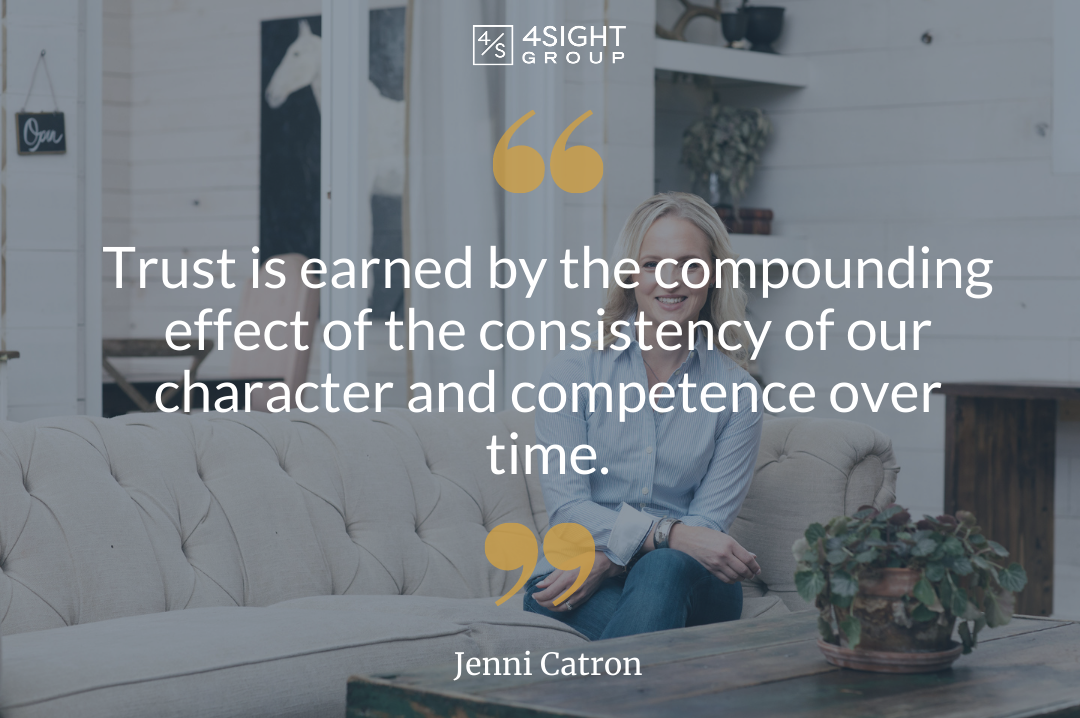A friend of mine shared a story with me from her recent weekend road trip. She and her family drove from middle to east Tennessee to visit extended family, a drive that involves going over Monteagle mountain. On this particular drizzly, cold winter day, the top of the mountain was covered in dense fog, the kind of limited visibility that forces drivers to slow down, turn on their hazard lights and clench their steering wheels.
My friend found herself the lead car headed up the mountain and sensing from the behavior of the drivers behind her that they wanted to be moving faster. After a couple of miles, one attempted to pass but immediately slowed to the same pace when they experienced for themselves the uncertainty and limited visibility with no one ahead of them to lead the way.
Sounds a lot like leadership these days, doesn't it?
Finding our way forward feels more challenging than ever. You are doing your best to forge ahead at the speed that is wisest for your team and your mission based on the circumstances, but those you’re leading are frustrated and begin to grumble:
-
Why aren’t we moving faster?
-
Why didn’t we make a different call?
-
If I was the decision maker, I’d be doing it differently. Better.
We can’t expect our teams to be able to see what we can see, or to understand the weight of moving things forward efficiently and effectively when we CAN’T see the path ahead (at least not as far ahead as we’d prefer.)
What we CAN do is create a culture built on trust.
When I’m coaching executive teams, the most common issue they cite for the reason they’ve engaged me is lack of trust. The frustration is that in many cases they don’t know how they lost it or how to rebuild it.
Stephen M. R. Covey says, “Trust is a function of two things: character and competence. Character includes your integrity, your motive, and your intent with people. Competence includes your capabilities, your skills, your results, and your track record. And both are vital.”
The greatest challenge I see for leaders is once they've lost trust they want to find the fastest route to rebuilding it. They hope a one-day workshop will do the trick. The problem with trust is that it is an outcome, not a singular action.
Trust is earned by the compounding effect of the consistency of our character and competence over time.
This is why trust is such a critical foundation for your culture. If trust is lacking, your culture will be marked by complacency, mediocrity, micromanagement and frustration (just to name a few).
So where do we begin? While there are many factors that contribute to building trust, here are three to focus on first.
3 Ways to Build a Culture of Trust
- Be trustworthy.
While this may seem obvious, you cannot build trust unless you are able to be trusted. Simply put: do what you say you will do, when you say you will do it, and do it well. When you have repeatedly deposited reliability, honesty and integrity into your team’s experiences with you, you will be able to make withdrawals on that investment even when the way ahead is unclear. - Cast vision with context.
It’s not enough to say, “This is where we are going.” An extraordinary leader, one who inspires the trust of those they lead, takes vision casting a couple of layers deeper. They say, “This is where we are going. These are the unique strengths and capabilities I see in you that will help us get there. Here are the ways I’ve already considered that this will affect you.” When you provide context, you allow your team to find themselves in the story that’s being written and you communicate that you value them enough to have thought about the sacrifices they’ll need to make in order to be a part of the story.Does this require more of you? Yes. But you answered the call to leadership because you’re willing to step into moments that require more. Is it worth it? Undoubtedly. - Be clear about what matters most.
As leaders, we must fight for clarity when it is possible. Admittedly, complete certainty is rarely possible, which is why providing as much clarity for our teams as we can builds their trust. When we can’t be certain of the outcome of a decision, we CAN be clear that it aligns with our purpose. When we can’t guarantee results of an initiative, we CAN be clear that the way the team pursues it together is a measure of its success. Trust is built around clearly articulated purpose and values.
When you are trustworthy, when you value providing context to your team and when you fight for clarity about what matters most, you will build trust. And with a foundation of trust, you and your team will be able to move forward together with strength and confidence, even when the path ahead is unclear.
Keep leading well!
Jenni Catron and The 4Sight Group
One of the best ways to provide clarity for your team is to simply speak a common language. It’s pointless to have a vision statement or values on the wall if no one understands or buys into them. Use this FREE tool to help you clarify and communicate what’s most important so your team can align around clear and compelling values.



Leave Comment